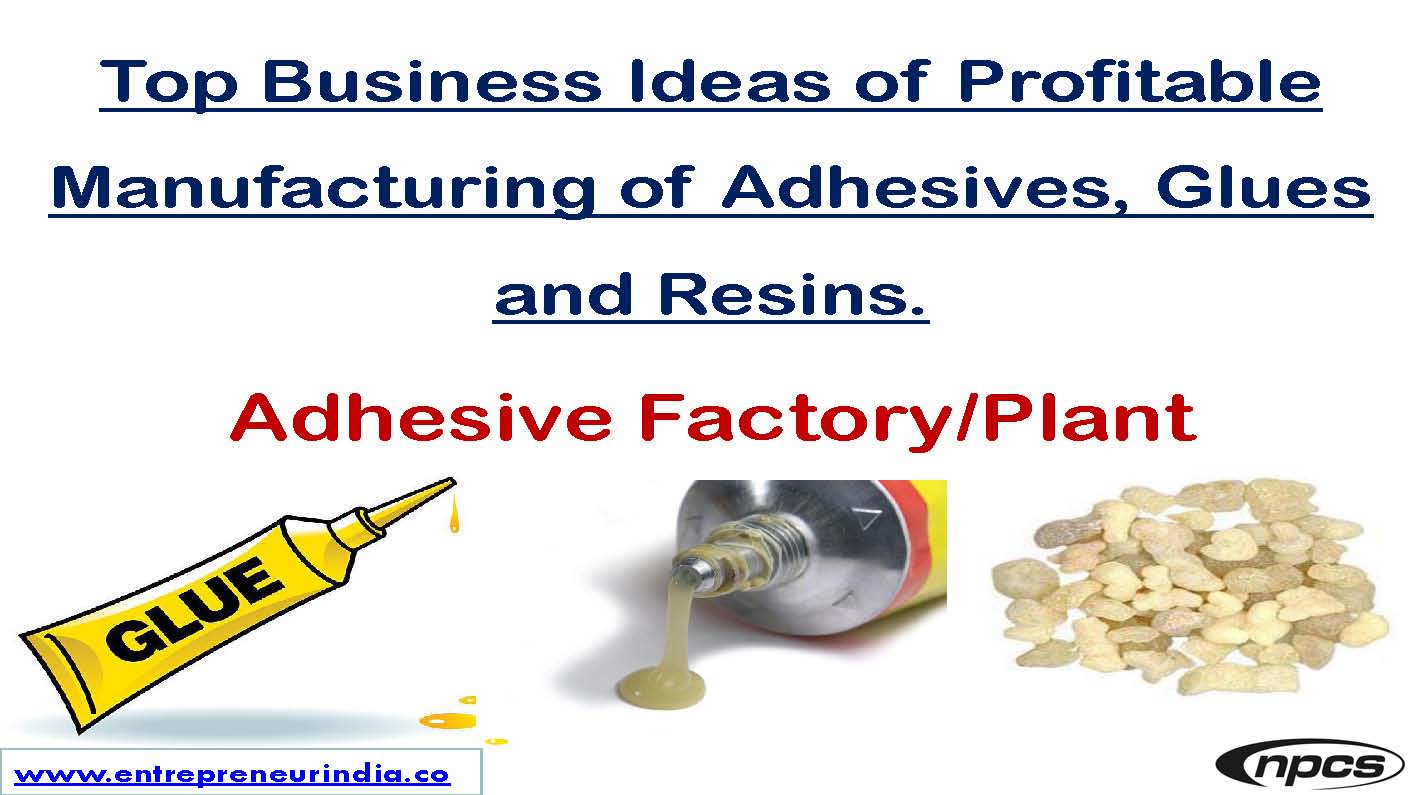
The global demand for high-performance bonding agents is growing across sectors such as construction, automotive, packaging, electronics, woodworking, and consumer goods. In this context, exploring business ideas of manufacturing of adhesives, glues and resins offers a profitable opportunity for entrepreneurs looking to enter the chemical and materials industry. These products serve as the backbone of modern assembly and packaging processes. Moreover, with India’s expanding infrastructure and manufacturing sectors, the need for quality adhesives and resins is expected to increase consistently. By selecting the right niche, formulation, and target market, you can build a scalable and high-margin business.
Business Ideas of Manufacturing of Adhesives, Glues and Resins
There are multiple profitable niches within this sector, each catering to specific industries or customer segments. Let’s explore some of the most promising opportunities and what it takes to launch them successfully.
1. Water-Based Adhesive and White Glue Manufacturing
Water-based adhesives, especially PVA (polyvinyl acetate) glue, are widely used in packaging, stationery, bookbinding, woodworking, and school supplies. These adhesives are easy to manufacture with minimal toxic content, making them suitable for consumer use. The process includes:
-
Mixing water, emulsifiers, and PVA resin
-
Adding preservatives and stabilizers
-
Homogenizing and packaging
You can start this business with an investment of ?5–10 lakhs and semi-automatic machinery. Moreover, there’s strong demand in the education, furniture, and craft sectors, ensuring consistent bulk orders.
2. Epoxy Resin and Hardener Manufacturing
Epoxy adhesives and resins are used in structural applications such as flooring, marine coatings, electronics, and automotive parts. The business involves chemical handling, blending of resins and hardeners, and maintaining precise temperature controls. The process includes:
-
Mixing epichlorohydrin and bisphenol-A
-
Adding plasticizers, hardeners, and accelerators
-
Filtering, degassing, and packaging
This business requires ?20–50 lakhs for a small plant and must follow strict safety and environmental protocols. Moreover, branding and B2B partnerships with construction or electronics firms can ensure steady growth.
See More –Fish Processing Business
3. Hot Melt Adhesives (HMA) Manufacturing
Hot melt adhesives are widely used in the packaging, textiles, and automotive sectors. They are solvent-free, solid at room temperature, and applied when heated. The manufacturing process includes:
-
Melting and blending base polymers (like EVA or PE)
-
Adding tackifiers, waxes, and stabilizers
-
Cooling and forming into sticks or pellets
This business has high scalability, and with an investment of ?15–25 lakhs, you can supply to packaging units, e-commerce brands, and bookbinding facilities. Moreover, HMAs offer high margins due to their efficiency and fast curing time.
4. Synthetic Resin Manufacturing (Urea-Formaldehyde, Phenolic, Alkyd)
Synthetic resins are vital ingredients in the production of plywood, laminates, paints, and varnishes. Common variants include:
-
Urea-formaldehyde resin – used in plywood and MDF
-
Phenolic resin – used in brake pads and coatings
-
Alkyd resin – used in oil-based paints and coatings
Manufacturing resins involves chemical synthesis and polymerization reactions. It requires skilled technicians, reactor vessels, scrubbers, and waste management systems. Although capital-intensive, this segment offers high returns when catering to industrial buyers and exporters.
See More – Cashew Nut Processing
Conclusion
The business ideas of manufacturing of adhesives, glues and resins present diverse opportunities for entrepreneurs targeting industrial and commercial users. Whether you start small with white glue or scale up with epoxy or synthetic resins, this sector promises steady demand and good profitability. Moreover, with the government encouraging MSME growth and import substitution, local production of high-quality adhesives and resins is in high demand. Focus on formulation quality, regulatory compliance, and customer relationships to build a successful, long-term manufacturing business in this essential industry.





